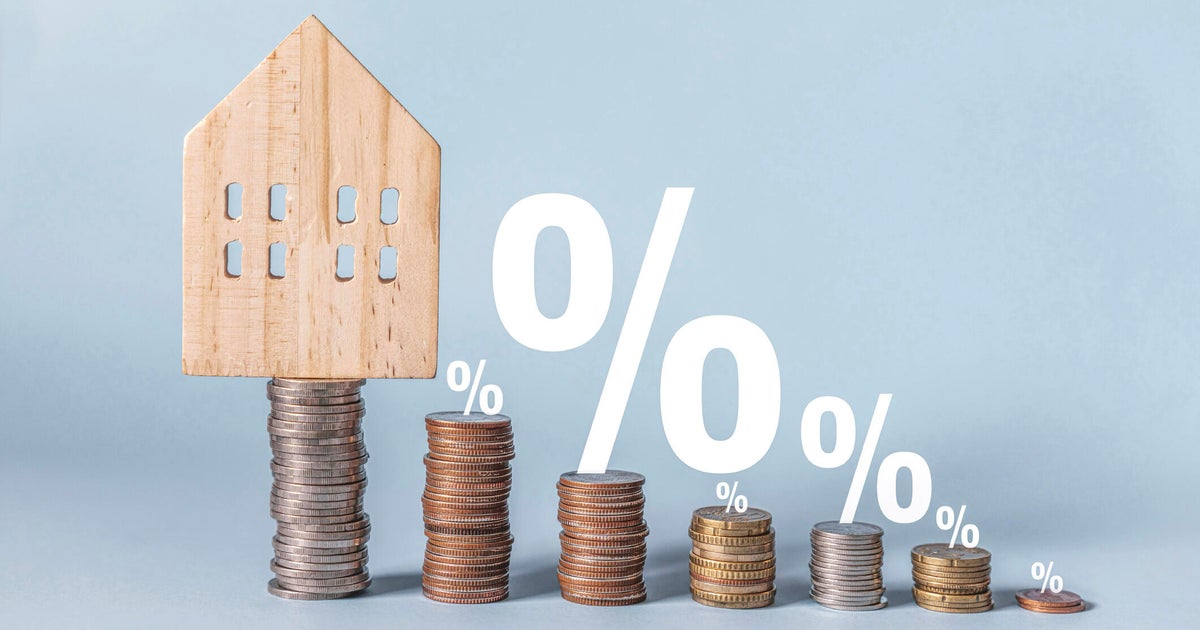Will mortgage rates fall after the September Fed meeting? Here's what some experts predict
The housing market, dogged in recent years by high prices and interest rates, is expected to get good news on the rate front soon. The Federal Reserve is widely expected to lower interest rates at its next meeting on September 17 and September 18. The federal funds rate currently stands at a 5.25% to 5.50% range, and there are expectations that the Fed will reduce the rate by 25 basis points.
Inflation ticked up 0.2% in July on a seasonally adjusted annual basis but remains below 3% — another positive development for homebuyers. The inflation numbers, combined with other economic indicators, have led many economists and rate watchers to believe the Fed will lower rates at the September meeting.
If this prediction holds true, will mortgage interest rates also drop? Not necessarily. Here's what experts say could happen instead.
Start shopping for a mortgage loan and compare your best offers online now.
Will mortgage rates fall after the September Fed meeting? Here's what some experts predict
Here's what several experts have to say about what could happen to mortgage rates if the Fed cuts interest rates.
Mortgage interest rates will not fall for now
While the Federal Reserve doesn't set mortgage rates, they are often influenced by the Fed's monetary policy decisions, among other factors. In fact, mortgage lenders don't have to wait on the agency to lower the federal funds rate before adjusting their loans. As such, experts suggest that any September rate reduction by the Fed is already factored into current lending rates.
"Mortgage rate movements are largely anticipatory of the Fed's actions, which means that a lot of the recent decline in mortgage rates is already reflecting the expected rate cut in September," says Dr. Selma Hepp, the chief economist at CoreLogic. "Nevertheless, while the September rate cut is rather certain, the dynamics between inflation and employment will determine how much and how often the Fed cuts rates for the rest of the year."
Shmuel Shayowitz, the president and chief lending officer at Approved Funding Corp, also notes the market has already accounted for the Fed's anticipated September rate cut.
"At this point, there is 100% certainty that there will be at least a 25 basis point cut, which is currently reflected in mortgage rates," says Shayowitz. "Mortgage yields broke out of their range-bound trading on July 31st, most likely because of this sentiment, and we do not expect to see further improvement in mortgage rates in anticipation of the September 18th Fed meeting, absent a more aggressive rate outlook."
Find out what the best mortgage loan options are for you now.
Mortgage rates could remain in mid 6% range, but the job market could have an impact
The degree to which rates fall through year's end may depend on economic indicators such as inflation and employment trends.
"If the job market continues to cool or the cooling intensifies, the Fed could cut more aggressively than the two cuts that are currently being priced in the market," says Hepp. "In that case, mortgage rates could fall more rapidly. The consensus forecast still has mortgage rates remaining in the low to mid 6% range by the year's end. Again, significant cooling in the labor market could mean that the rates fall below that range."
With mortgage rates already reflecting the expected Fed cuts, buying now may make sense if you're financially ready to do so. You could also wait for slightly lower mortgage rates if the job market softens more than expected, but remember that is not certain.
"I think mortgage rates have seen their highs for 2024, and rates are slowly going to come down," says Jeremy Schachter, branch manager at the Fairway Independent Mortgage Corporation. "I don't anticipate rates being reduced much in 2024. If economic indicators continue to be positive for the rest of 2024, mortgage rates will continue to stabilize. You will see this in cooling inflationary reports, slowing the job market and key indicators being lower such as the cost of rent, consumer goods and energy."
The bottom line
Many potential homebuyers are standing on the sidelines waiting for rates to drop, but purchasing a home now may have its advantages. While many homebuyers are choosing to wait, you may face less competition in the market, which could improve your odds of landing your dream home.
If you wait for mortgage rates to drop significantly, you could be entering the market just as competition — and home prices — are heating up. By buying now, you could potentially purchase a home at a lower price due to less competition and mortgage rates at their lowest levels since April 2023.
Of course, deciding when to buy a home is a personal decision based on your unique financial situation. Always analyze the costs of homeownership, including your mortgage, to ensure you can comfortably afford them.




